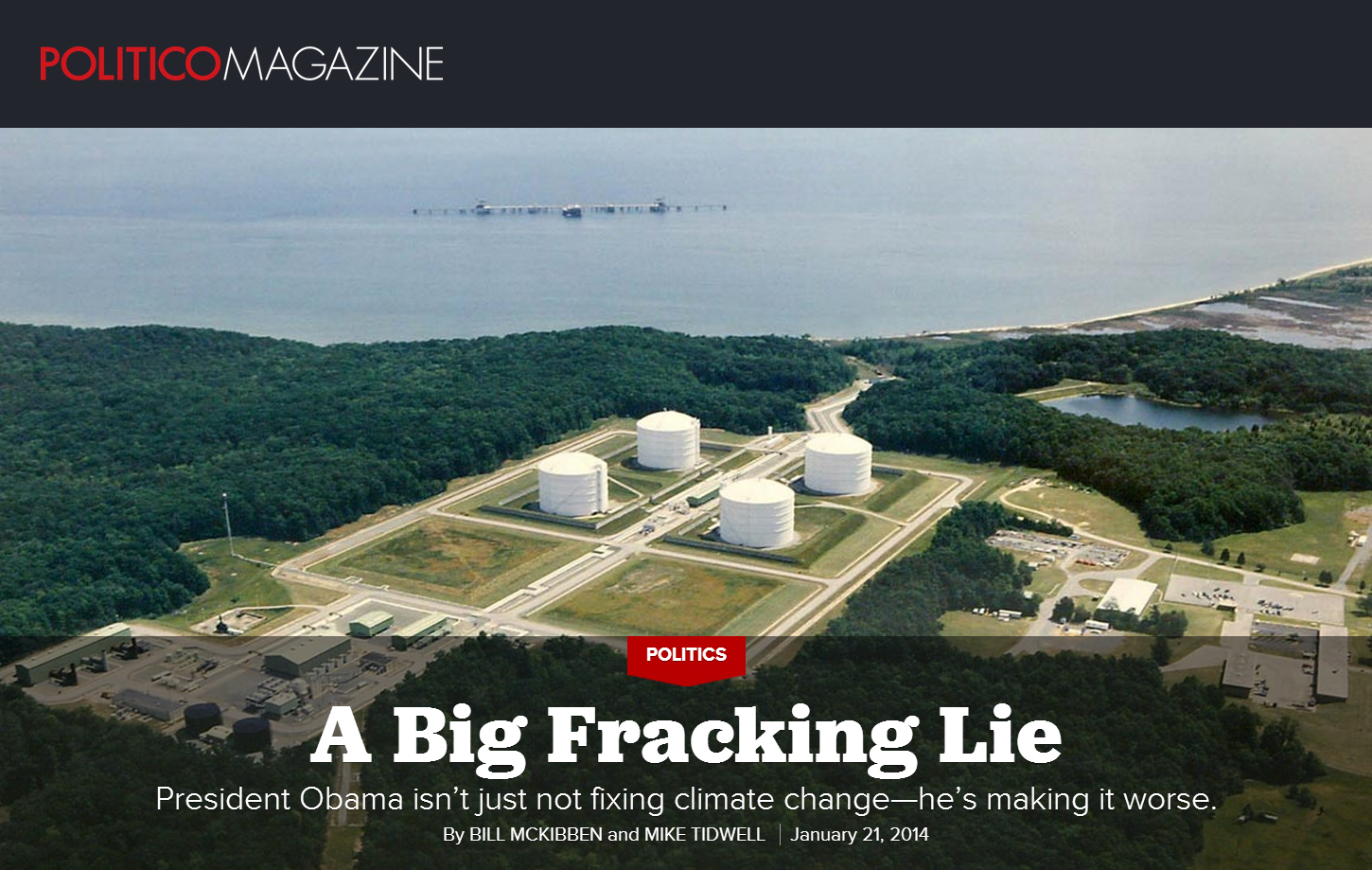The Baltimore Sun
By Jamie Smith Hopkins
The way energy company Dominion sees it, exporting liquefied natural gas from its Southern Maryland complex wouldn’t be that big of a shift from the importing it does now. Same pipes, same storage tanks, same terminal.
But the project at Cove Point strikes opponents as a sea change. Now those fighting the proposal on environmental grounds are joining forces with some Calvert County residents worried about hazards from the liquefied natural gas, or LNG, which on rare occasions has caused deadly fires or explosions.
Dominion wants to convert natural gas to its chilled liquid form at the expanded facility — which will cost as much as $3.8 billion — before it’s exported in a process the company said is safe.
“We have public safety in mind, but there’s nobody more interested in protecting us than us,” said Michael D. Frederick, vice president of LNG operations at Cove Point, noting that his office is a few hundred feet from the planned expansion, and his home is a few minutes away by car.
But the plans make Lusby residents Dale and Sue Allison anxious.
“We live very close to it,” said Dale Allison, a retired Navy engineer who moved to the area in 1997, during a less active period in Cove Point’s history. “We can see the tanks out of our kitchen window.”
Unlike the LNG import terminal proposed years ago for Sparrows Point, which drew political ire, Cove Point has high-powered support. Rep. Steny Hoyer, a Democrat who represents the area and is the House minority whip, likes the idea. So do Calvert County’s commissioners, who welcome the project as an economic boon and who approved a tax break for the expansion.
The opposition includes Democratic gubernatorial candidate Del. Heather Mizeur, who argues that Maryland can’t afford the big uptick in greenhouse gases the power-intensive operation would produce locally. A Calvert County Circuit Court judge turned aside a Sierra Club effort to block Dominion’s plans.
Cove Point is among approximately two dozen LNG export facilities proposed across the country, all driven by a massive change in the country’s energy fortunes.
Cheaper, more abundant natural gas that has come with hydraulic fracturing, or “fracking,” has made importing much less necessary — and exporting look like a good business bet. U.S. natural gas prices have been running about $3.50 to $4 per million British thermal units, compared with around $16 in Japan, according to the U.S. Energy Information Administration.
The agency forecasts that the United States will become a net exporter of LNG in 2016. It also predicted that exporting would increase prices for domestic consumers.
Dominion and other firms seeking to reassure terminal neighbors about safety say the likelihood of an incident at an LNG facility is extremely low, and the odds that such a problem would spread off the site are even lower.
But the few accidents that have occurred fuel community fears of explosions and vapor clouds of leaked LNG.
The only LNG incident at a U.S. facility that resulted in deaths off site happened in 1944, when a fire caused by a storage tank failure in Cleveland killed 128 people and injured at least 200 more, according to the Federal Energy Regulatory Commission. The tank wasn’t suited for very low temperatures, the FERC said, a problem fixed in modern facilities.
Cove Point opponents point to a more recent explosion at an Algerian liquefaction facility, which killed 27 workers in 2004. Opponents also note that a natural gas processing plant in West Virginia — a different type of facility, but newly opened by Dominion in a joint venture — suffered an explosion and fire in September.
“They were … telling the community this was going to be a world-class, highly reliable facility, and then two months after they turned it on, it blew up,” said Mike Tidwell, executive director of Chesapeake Climate Action Network, which opposes the project for environmental and safety reasons.
The blast shook houses but caused no injures. Dominion said the damage was limited to a small area on the site.
Chet G. Wade, a Dominion spokesman, said that demonstrates that in the “very, very, very rare incidence there’s an incident,” the company’s safety measures keep problems contained.
But what sparked the accident has yet to be explained.
“The official report hasn’t been finished,” Wade said.
The Algerian blast was caused by a leak that allowed gas to flow into the boilers through an air intake.
That won’t happen again, Frederick said.
“One of the things that changed worldwide after that was gas detection at all air intakes of fuel-burning equipment,” he said. “If there were a cloud, the gas detection would sense that and shut it down.”
Frederick said Cove Point has duplicates of each safety system, just in case.
“If all that failed — I’m telling you it won’t — but if all that failed, an issue would be contained on the site,” he said.
Though chilling gas to a liquid is more complex than reversing the process, Frederick said exporting is no more inherently dangerous than importing.
James Fay, a professor emeritus of mechanical engineering at the Massachusetts Institute of Technology, disagreed. He said an LNG export facility has the potential to be much more dangerous. Propane gas is generally used as a refrigerant in the liquefaction process, he said, and propane can catch fire.
“This is not a simple little addition,” Fay said of Cove Point. “An export terminal is entirely different from an import terminal.”
Cove Point’s existing storage tanks, including three added by Dominion after it bought the facility in 2002, would be used for the export business. That’s another point of contention, because the tanks use single-wall containment, without the extra layer of protection built into other models.
It alarmed neighbor Dale Allison to think the company is using what he called “the least-safe tank.”
Frederick said each tank is set in a pit that’s designed to contain the maximum amount of liquid in a spill — 110 percent of the tank’s capacity.
The design would prevent vapor clouds from traveling off site, he said, and any fire would stay put as well.
“The bottom line is, we modeled the situation so what you just described doesn’t happen,” he said.
Nevertheless, opponents aren’t satisfied.
Tidwell, with the climate action network, criticized the FERC’s decision to take the less extensive of its two review options.
“They’re fast-tracking this,” said Tidwell, whose group is organizing a Baltimore rally against the expansion next month. “Is this happening so fast that there’s some major safety risk that has not been thought through?”
The environmental assessment that FERC staffers are working on will consider a variety of issues, safety included. But such assessments don’t examine as many issues as a full environmental impact statement, and offer people less time — and no public hearings — to comment on it.
Dominion executives said the environmental assessment is no quick or slapdash effort. The company already has filed 21,000 pages of documents in the FERC case that started in 2012, they said.
“The idea that it’s not thorough is just not true,” Frederick said.
June Sevilla, a chemical engineer who lives near Cove Point, worries about a potential fault near the facility.
There likely is a fault in the area, said Peter Vogt, a semiretired marine geophysicist who lives about 10 miles from Cove Point. There’s evidence of one in a valley nearby, but more work would need to be done to confirm that, as well as how far it reaches and how long it’s been inactive, he said.
Vogt, who dislikes the tax break but is otherwise open-minded about the Cove Point proposal, thinks the possible fault leaves a nagging question and that more research should be done.
Dominion’s Frederick said the design already takes earthquakes into account, along with hurricanes and tornadoes. And the company said it thoroughly considered seismic threats along with the FERC and the Maryland Department of Natural Resources.
Dominion, which negotiated exporting contracts for the facility with companies in India and Japan, is hoping for a decision from the FERC in the near future. The firm is ready to start construction this spring, if approved, and begin exporting in 2017 — adding about 75 jobs to the 100 there now.
The county’s coffers would get a boost, though partially muted by the tax break. Dominion would pay $40 million more in annual property taxes for five years, increasing the rural Calvert County’s total property tax revenue by more than 25 percent. That would be followed by a 42 percent tax break for nine years.
Cove Point’s import contracts begin expiring the year Dominion hopes to start exporting and will all be gone by 2023. Unless the natural gas market takes another dramatic turn, the company doubts it will import more.
“There’s no economic sense to have somebody import gas to the United States at the same time somebody’s exporting gas from the United States,” Wade said.






